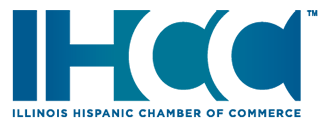Governor JB Pritzker and the Illinois Department of Commerce and Economic Opportunity (DCEO) released applications for the latest in a series of grant programs designed to offset the economic impact of COVID-19 for businesses and communities across Illinois.
The new Business Interruption Grant (BIG) and the Rebuild Distressed Communities grants total $85 million and will provide relief for thousands of businesses affected by the ongoing pandemic.
Applications for BIG grants and the Rebuild Distressed Communities NOFO are due on July 7th.
For more information on eligibility and how to apply, visit DCEO’s website.
These programs administered by DCEO are part of over $900 million in new programs recently announced by Governor Pritzker, with a focus on restoring communities hit hardest by the pandemic.
Both programs offer priority for small businesses whose operations were heavily restricted or completely shut down during the pandemic, for those located in disproportionately impacted areas(DIAs), as well as those in communities damaged by recent civil unrest. DIAs are low-income areas that have experienced high ratesof COVID-19 cases.
Business Interruption Grants Program (BIG)
The first round of the new business interruption grants program, known as “BIG,” will make $60 million available for 3,500 businesses that experienced losses or business interruption because they closed or severely restricted their operations as a result of COVID-19.
Businesses eligible for BIG include restaurants and bars; barbershops and salons; health and fitness centers; as well as businesses located in DIAs which have had reports of recent property damage due to civil unrest.
Businesses prioritized for this first wave of funding must have experienced extreme hardship, demonstrated by losses in excess of the grant amount since March, caused by following the public health guidance to limit their operations.
Businesses must also have been in operation for at least three months prior to March 2020.
Grants will be made available for small businesses in amounts ranging between $10,000-$20,000, depending on business type and other eligibility criteria.
A full list of criteria as well as the application can be found on DCEO’s website.
Businesses and community partners can assess their eligibility and gather any documents needed to complete the application before it opens for submission on Friday, June 26th at 9:00am. All applications must be submitted by Tuesday, July 7th at 5:00pm.
BIG grants give businesses access to funds that will help accelerate reopening or expanding capacity, including assisting with purchase of technology, PPE or other equipment necessary to comply with new public health guidelines related to COVID-19.
Funds may be used to help businesses cover the costs payroll, rent, utilities and other working capital during the time businesses have experienced interruptions due to COVID.
All grant categories feature dedicated set asides for businesses located in DIAs, based on a statutory mandate to release a minimum of 30 percent of BIG funds to DIAs throughout Illinois. Disproportionately impacted areas are low-income zip codes that have had a significant numb er of cases of COVID 19 among residents.
For more information on determining eligibility or to see if your business is located in a DIA, visit DCEO’s website.
Distressed Capital Program
The second program, Rebuild Distressed Communities, is a$25 million economic recovery program 6o support Illinois businesses that have sustained property damage as a result of civil unrest during protest and demonstrations on or after May 25th, 2020.
The Distressed Capital Program will reimburse the costs to repair structural damages, including repairs to storefronts and entrances, improving electrical systems, and restoring exterior work.
The Distressed Capital Program will specifically help businesses located in DIAs and will prioritize small businesses, women and minority-owned businesses, underinsured or uninsured businesses, businesses that have a high community impact – such as grocery stores – and businesses in communities that have experienced historic disinvestment.
The Distressed Capital Program also includes provisions to encourage BEP contractors, including minority- and women-owned businesses, are the first in line to do the repair work.
DCEO is issuing a NOFO to identify an administrator or administrators to oversee the provision of funding to reimburse the costs of repairs already undertaken and cover future repairs for eligible businesses damaged as a result of civil unrest.

